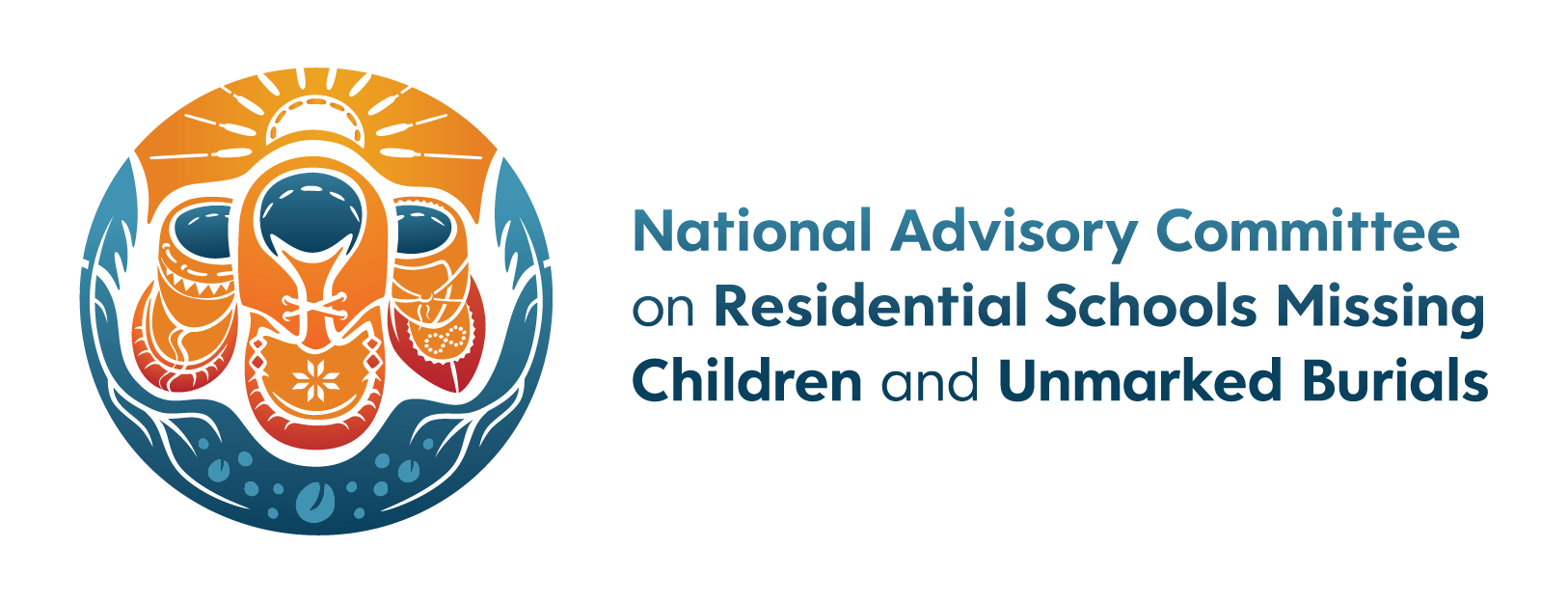Frequently asked questions about the National Advisory Committee
September 9, 2022
What is the purpose of the National Advisory Committee?
The National Advisory Committee has been created to provide a national source of independent, expert information in order to support community efforts to locate and memorialize the children who never returned home from residential school.
What kind of expertise do the Committee members have?
Committee members have a wide range of expertise including working with Survivors, researching residential school records, carrying out ground searches, conducting forensic investigations, securing evidence for potential prosecution, culturally-safe approaches to information sharing and disclosure, and community health and wellness. Many of the Committee members have first-hand experience in conducting research and ground searching related to unmarked graves. All are committed to respecting and upholding Indigenous protocols and promoting trauma-informed approaches.
What will the Committee do?
The primary task is to share information that can help address key needs and priorities of communities considering or already undertaking searches and related activities. The Committee will be producing tools such as factsheets and videos. Over the coming year, Committee members will also be participating in a number of workshops with communities targeting different regions to enable more in-depth conversations on these issues.
What is the relationship between this Committee and the newly appointed federal Independent Special Interlocutor on Unmarked Graves and Burial Sites?
The two initiatives are complementary. We hope that the Committee will be able to work closely with the Independent Special Interlocutor, Kimberly Murray, and draw on her considerable legal expertise. At the same time, because the Advisory Committee represents such a wide-range of disciplines, backgrounds, and work experience, we anticipate that the Committee will be uniquely able to support communities across the full range of issues related to searches and commemoration.
How were the Committee members selected?
The Committee members were selected by the Circle of Survivors who are guiding this initiative. Selection decisions took into consideration first-hand experience related to residential school research, a track record of working respectfully with diverse First Nations, Inuit and Métis Nation communities, and commitment to trauma-informed approaches. We are grateful that so many highly qualified and highly accomplished individuals were willing to serve on this Committee. Expert applicants who were not initially selected for the Advisory Committee may be engaged at a future time.
Will additional Committee members be appointed in the future?
Yes. We anticipate that the Committee will continue to grow and evolve. We are still in the process of recruiting to address a number of areas of knowledge and expertise that have already been identified as critical to the work of the Committee. As the members work together and engage with communities, we expect that additional needs will be identified.
Is this a government agency?
No. The National Advisory Committee is an independent body working under the guidance of a Circle of Survivors and is chaired by the National Centre for Truth and Reconciliation (an independent institution established through the Truth and Reconciliation Commission of Canada). The Committee is co-administered by both the NCTR (Secretariat support) and Crown-Indigenous Relations and Northern Affairs Canada.
Does the Committee provide funding?
No. This is not a funding body. Indigenous governments and organizations seeking support to conduct research and carry out searches are encouraged to access the federal government’s Residential Schools Missing Children – Community Support Funding. The website is https://www.rcaanc-cirnac.gc.ca/eng/1622742779529/1628608766235. The email address is [email protected].
Additionally, the NCTR has established a small grants fund for commemoration and healing activities. You can find more information on the Na-mi-quai-ni-mak (I remember them) fund at https://nctr.ca/memorial/na-mi-quai-ni-mak/na-mi-quai-ni-mak-community-support-fund/
